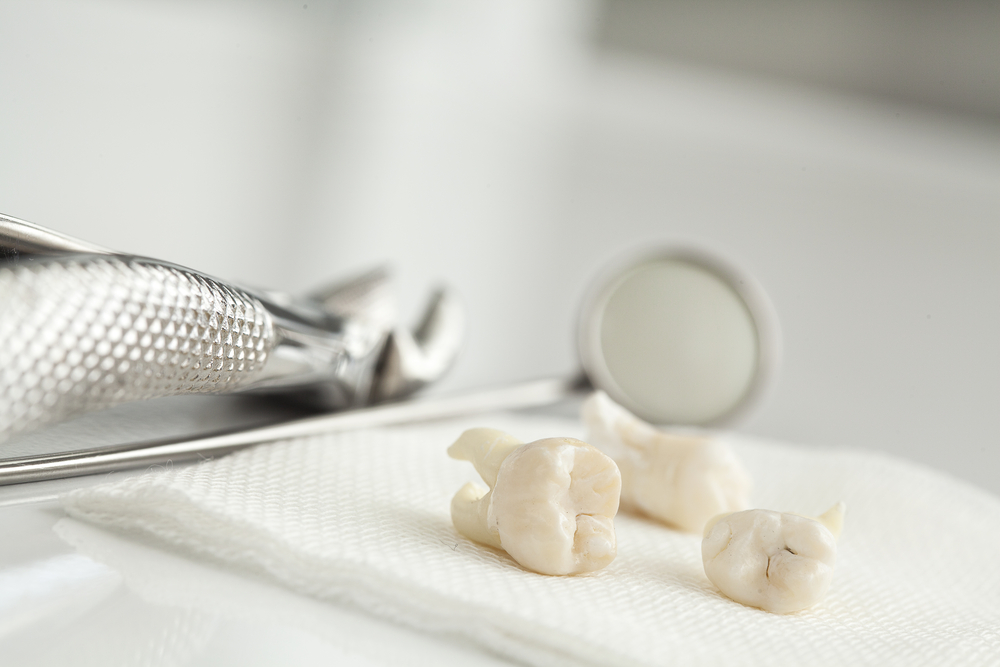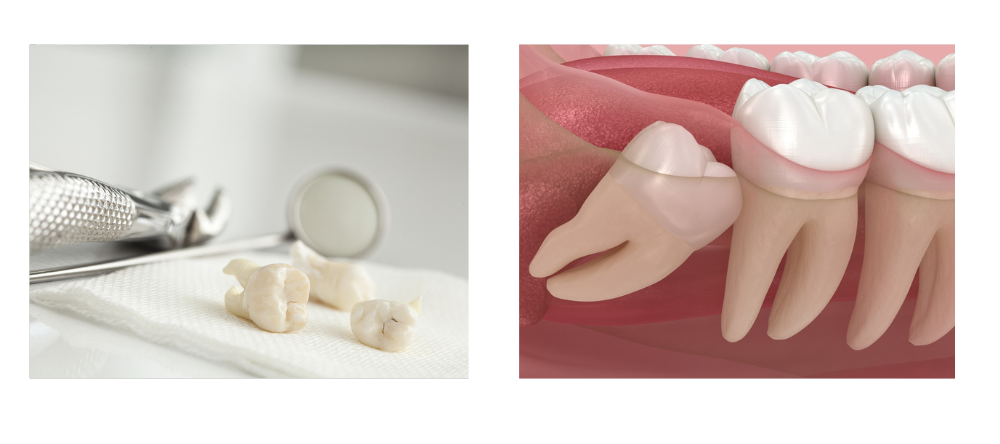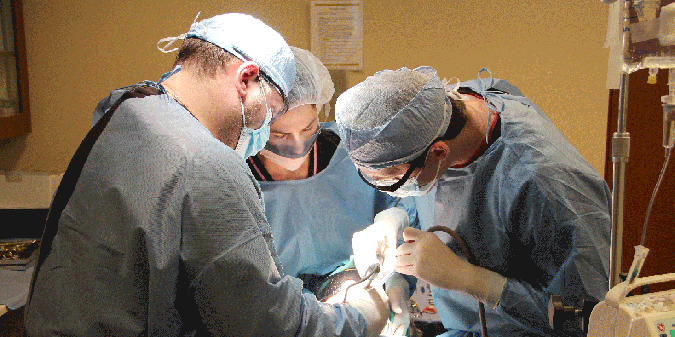Those wisdom teeth at the back of your mouth? They’re troublemakers. As we get older, they begin to emerge — often without enough space. This lack of room can cause discomfort, swelling, and infections. It’s an ordeal many face eventually.
What’s the fix? Removing these wisdom teeth often helps.
Don’t worry; it’s not as daunting as it seems. This operation is bread and butter for dentists and oral surgeons. We’re here to guide you through removing these pesky teeth. We’ll cover everything from recognizing the need for removal to navigating the recovery phase.
Let’s get into it, making this dental procedure clearer for you.
Signs That Your Wisdom Teeth Need To Be Removed
Wondering if It’s Time to Say Goodbye to Your Wisdom Teeth?
Deciding to remove your wisdom teeth isn’t always straightforward. Keep an eye out for these telltale signs:
- Ache in the Rear of Your Mouth: This is often the first hint of trouble.
- Gums That Are Swollen, Red, or Bleed Easily: Don’t overlook these symptoms.
- Teeth That Are Stuck: This happens when wisdom teeth can’t emerge through the gums.
- Trouble Opening Your Mouth or Jaw Pain: Your wisdom teeth might be to blame.
- Regular Infections:Look out for recurring problems at the back of your mouth.
Notice any of these symptoms? It’s wise to consult with Dr. Elaine Wu. She can determine if your wisdom teeth are causing these issues. Dealing with it sooner rather than later can save you from further discomfort and problems.
The Wisdom Teeth Removal Process
Feeling anxious about getting your wisdom teeth out? Let’s demystify the process:
- Initial Consultation: It all begins with a visit to your dentist or an oral surgeon. They’ll perform X-rays to understand your needs and plan your treatment.
- Anesthesia Options: You might receive local anesthesia (numbs the area), sedation (keeps you calm), or general anesthesia (puts you to sleep), based on what’s best for you.
- The Treatment: Under local or sedation anesthesia, your dentist or oral surgeon will remove the wisdom teeth. If needed, they’ll cut the teeth into smaller pieces to make removal smoother.
- Recovery Phase: Post-extraction, you’ll rest briefly as the effects of anesthesia diminish. You will go home with detailed aftercare instructions.
- Aftercare at Home: Recovery includes sticking to soft foods, managing pain with prescribed medication, and keeping the extraction site clean to ward off infection.
This step-by-step guide is crafted to tackle those pesky wisdom teeth and alleviate your discomfort, with a supportive dental team by your side every step of the way.
Post-Surgery Recovery: What to Expect
After getting your wisdom teeth out, understanding the recovery process can calm your nerves. Let’s walk through it:
- Rest and Heal: The first 24 hours are for rest. Take it slow to foster healing.
- Swelling and Bruising: This is expected for the first 48-72 hours. Use ice packs on your cheeks to lessen swelling.
- Pain Management: Pain is common but should be manageable. Follow your surgeon’s advice on using prescribed or over-the-counter pain relief.
- Eating Soft Foods: For a few days, opt for soft foods like soup, yogurt, and applesauce.
- Oral Hygiene: Gently rinse your mouth with salt water after the first 24 hours to keep it clean. Steer clear of brushing the surgery site directly at first.
- Activity Level: Ease back into your usual routine. Skip heavy exercise for a 2-3 days to avoid bleeding.
Everyone’s recovery journey is unique, but these guidelines can help smooth your path. Always stick to your dental team’s recommendations and contact them if you have any questions.
Potential Risks and Complications
Knowing the potential risks of wisdom teeth removal is vital for a smooth recovery. Here’s what you should be vigilant about:
- Dry Socket: Dry socket is a painful condition happens when the blood clot at the extraction site gets dislodged, exposing the bone underneath.
- Infection: Watch out for fever, pus, or increasing pain. Maintaining good oral hygiene is crucial for prevention.
- Bleeding: A bit of bleeding is expected, but if it’s excessive, it needs attention from your surgeon.
- Nerve Damage: It’s uncommon, but there’s a risk of temporary or permanent sensation loss in your mouth.
- Damage to Nearby Teeth: A rare but possible complication during extraction.
- Jaw Problems: You might experience stiffness and difficulty opening your mouth, which generally gets better over time.
Staying informed helps you stay ahead. Should you encounter anything out of the ordinary post-surgery, reaching out to your dental professional is essential. They’re equipped to guide you and address any concerns that may arise.
The Consequences of Postponing Wisdom Teeth Removal
Delaying wisdom teeth removal invites numerous complications. Here’s why acting promptly matters:
- Increased Pain: Waiting only makes the pain and complications worse.
- Infection Risk: Impacted wisdom teeth can cause serious infections, possibly jeopardizing your overall health.
- Damage to Other Teeth: Wisdom teeth can press against adjacent teeth, leading to damage and misalignment.
- Cysts and Tumors: Although rare, impacted wisdom teeth may lead to cysts or tumors, harming the jawbone and teeth.
- Gum Disease: Wisdom teeth that are hard to clean can cause gum disease and tooth decay, making oral hygiene more challenging.
- Overall Health Issues: Oral health affects your entire body. Neglecting it can worsen conditions like heart disease and diabetes.
Promptly addressing wisdom teeth problems helps avoid unnecessary discomfort, potential complications, and more complex treatments later. Early consultation with a dental professional is crucial.
Take Charge of Your Dental Health Now!
Here’s our approach:
- Comprehensive Consultation: Our journey begins with an in-depth evaluation of your dental health, employing state-of-the-art imaging techniques.
- Personalized Treatment Plan: Elaine Wu designs a custom plan for your mouth aiming to avoid future discomfort.
- Supportive Care: We offer clear recommendations for how you should care for your mouth, ensuring healthy teeth and gums for years to come.
Don’t wait—book your consultation today. Meanwhile, check out our website for further details on our dental care philosophy. Say goodbye to the worries of dental problems, including impacted wisdom teeth and say hello to a healthy, pain-free smile.
SCHEDULE your free consultation to see if Dr. Wu can help you.
FAQs About Wisdom Teeth Removal
- When Should Wisdom Teeth Be Removed? Pain, swelling, difficulty chewing, or frequent infections around your wisdom teeth signal it’s time to see your dentist.
- Does Removing Wisdom Teeth Hurt? Anesthesia ensures you feel no pain during the procedure. Any post-surgery discomfort is manageable with pain medication.
- What Are the Risks of Removing Wisdom Teeth? Though it’s a safe procedure, possible risks include dry socket, infection, excessive bleeding, and, rarely, nerve damage or effects on adjacent teeth.
- What’s the Recovery Time for Wisdom Teeth Removal? Recovery usually spans a few days to a week, with most returning to daily activities within a couple of days, taking certain precautions.
- Can I Eat Normally Post-Surgery? Start with soft foods post-surgery and gradually reintroduce solid foods as you feel more comfortable.
- What Is Dry Socket and How Can I Prevent It? Dry socket occurs when the blood clot at the surgery site is dislodged, revealing bone. Prevent it by not smoking, avoiding straws, and following your surgeon’s care guidelines.
- Will I Be Awake During the Procedure? The type of anesthesia—local, sedation, or general—will determine if you’re awake. Your dentist will suggest the best option.
- Post-Surgery Mouth Care? Adhere to your surgeon’s care instructions, including gentle saltwater rinses and avoiding certain foods and activities.
Contact Us
Phone:
978-451-1500
Address:
1201 Main St.
Tewksbury, MA 01876
Email:
team@mybrandnewsimile.com






